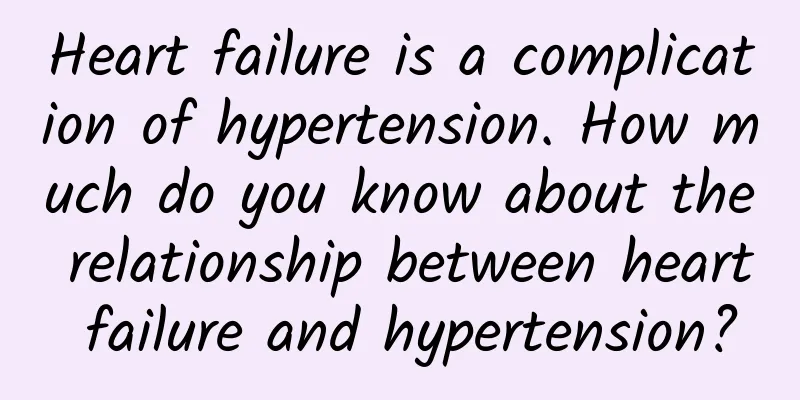Does polycystic ovary cause abdominal pain?

|
Polycystic ovaries mostly occur in women of childbearing age, usually due to endocrine disorders and metabolic abnormalities. There are basically no obvious symptoms in the early stage, and it is often discovered in the late stage. The cysts are usually multiple cysts, so it is called polycystic ovary. This disease can cause menstrual disorders, amenorrhea, vaginal dryness and other problems. So will polycystic ovaries cause lower abdominal pain? What causes polycystic ovary? The cause of polycystic ovary is still unclear. Generally speaking, this type of disease is a congenital multi-gene disease and is also closely related to later lifestyle. For example, long-term consumption of high-calorie or high-fat diets, lack of exercise, and high blood lipids and blood sugar may induce symptoms of polycystic ovary. In addition, the vicious cycle causes the symptoms of polycystic ovary to gradually worsen. In terms of treatment, it is necessary to break the vicious cycle and control the disease through lifestyle changes. Clinical manifestations of polycystic ovary 1. Menstrual disorders. The main clinical manifestations are amenorrhea, oligomenorrhea and functional uterine bleeding, accounting for 70% to 80% of women with abnormal menstruation, 30% of secondary amenorrhea, and 85% of anovulatory functional uterine bleeding. Due to the patient's ovulatory dysfunction and lack of cyclical progesterone secretion, the endometrium is under simple high estrogen stimulation for a long time. Continuous endometrial hyperplasia is prone to simple endometrial hyperplasia, abnormal hyperplasia, and even atypical endometrial hyperplasia and endometrial cancer. 2. Clinical manifestations related to hyperandrogenism. For example, hirsutism, hyperandrogenic acne, female pattern hair loss (FPA), seborrhea and masculinization, etc. 3. Polycystic ovary (PCO). Although a lot of research has been done on the ultrasound diagnostic criteria for PCO, there are still many different opinions. In addition, racial differences make it even more difficult to unify the diagnostic criteria. 4. Other manifestations. For example, obesity, infertility, obstructive sleep apnea, and depression. Therefore, the cause of polycystic ovary is still unclear, but congenital factors and acquired lifestyle have a great relationship with the onset of this disease. If you suffer from polycystic ovary, it is recommended to go to the hospital in time to receive regular treatment. In addition, you should pay attention to the regularity and health of your lifestyle. |
<<: Does ovarian cyst cause stomach pain?
>>: What are the consequences of removing the ovaries?
Recommend
Causes of thyroid nodules in women
There are still many women who have thyroid nodul...
Breast cancer definition and treatment
Women's bodies also need to be well maintaine...
Attention, patients with high uric acid! Don’t just look at purine when eating!
The acidity and alkalinity of food is one of the ...
What to do if you have anemia at 37 weeks of pregnancy
Anemia during pregnancy is a very common physical...
14 frequently asked questions about childhood influenza, answered by experts from Beijing Children's Hospital!
Respiratory diseases are common in children in wi...
What is uterine discharge
The uterus is a unique reproductive organ in the ...
The difference between premature birth and miscarriage
The difference between premature birth and miscar...
How do women use dumbbells to train their chest muscles?
Dumbbells are a very commonly used fitness equipm...
Can I eat coconut during my period?
Fruits grown in the tropics have a unique flavor ...
How long should the gauze belly band be worn after childbirth?
After giving birth, mothers not only have to face...
Experts help you win the college entrance examination | After the college entrance examination, there is a "glasses removal craze"! How to perform myopia correction surgery? Please keep this "glasses removal guide"
It is the annual college entrance examination sea...
Hairline is not stable? Eating right may help you change it!
When people reach middle age, nothing is easy, bu...
Is an ovarian cyst a tumor?
When it comes to ovarian cysts and tumors, female...
What to do if pregnant women have rhinitis and itchy eyes
If a pregnant woman has rhinitis and itchy eyes a...
5G smartphone penetration is expected to reach 72% in 2024
A series of recent research reports released by T...









